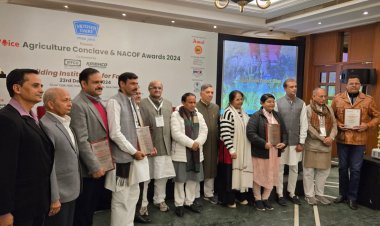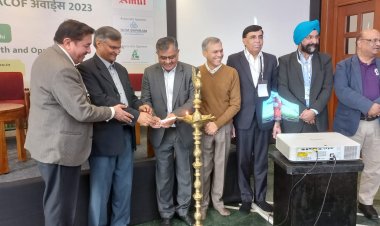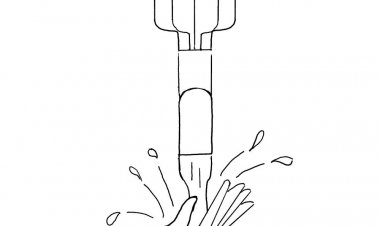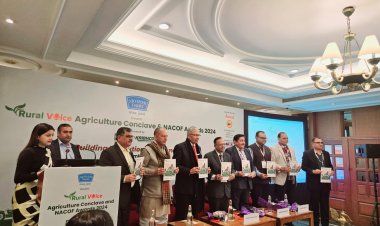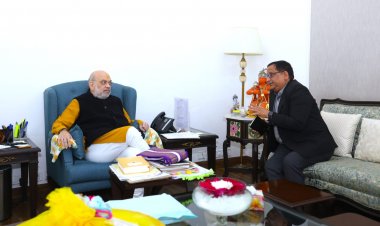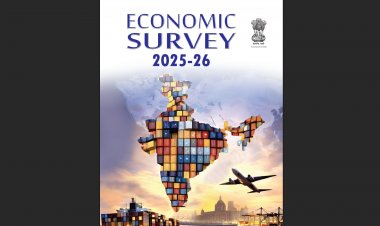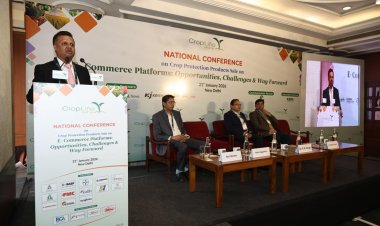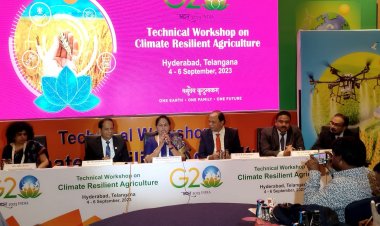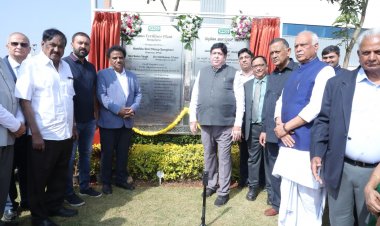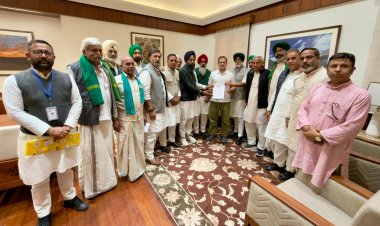‘Farmers need to intervene in policymaking process to bring about real change’
In the 4th annual conference of the Kisan Chamber of Commerce (KCC), speakers suggested, among other things, doing away with the practice of first taxing and then subsidizing agricultural implements, shifting to high-demand crops to earn better, and including agriculture as a subject in the curriculum up to +2 level.
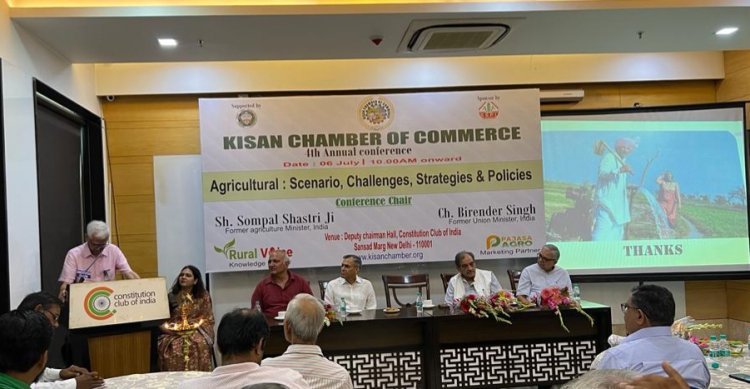
Farmers will have to intervene in the policymaking process if they desire policies for their welfare. The current policies related to agriculture have several flaws. If the government withdraws taxes on agricultural implements, their prices will reduce and the need for subsidizing them will be obviated. The farmers do not have the capacity to hold their crops, so they have to sell their produce willy-nilly. If farmers want better income, they need to be demand-oriented. Agriculture should be included in the curriculum up to +2 level to make the youth more interested in agriculture.
The above were some of the suggestions made by the speakers at the fourth annual conference of the Kisan Chamber of Commerce (KCC) held in New Delhi on Wednesday. The conference was addressed, among others, by former Agriculture Minister Sompal Shastri, former Steel Minister Chaudhary Birender Singh, NITI Aayog member Prof. Ramesh Chand and former NABARD Chairman Harsh Bhanwala.
Govts support farmers in all countries: Sompal Shastri
Sompal Shastri said that our farmers did not have the capacity to hold their produce. So, they have to sell it as soon as the crop is harvested. They are not in a position to bargain for better prices. Shastri said that governments supported farmers in all countries. Citing the example of Switzerland, he said that its farmers received about Rs 2.5 lakh per hectare every year. But in India, people question the support given to the farmers. Besides, the government announces MSP (Minimum Support Price) for 23 crops but, in reality, farmers get MSP for two to three crops.
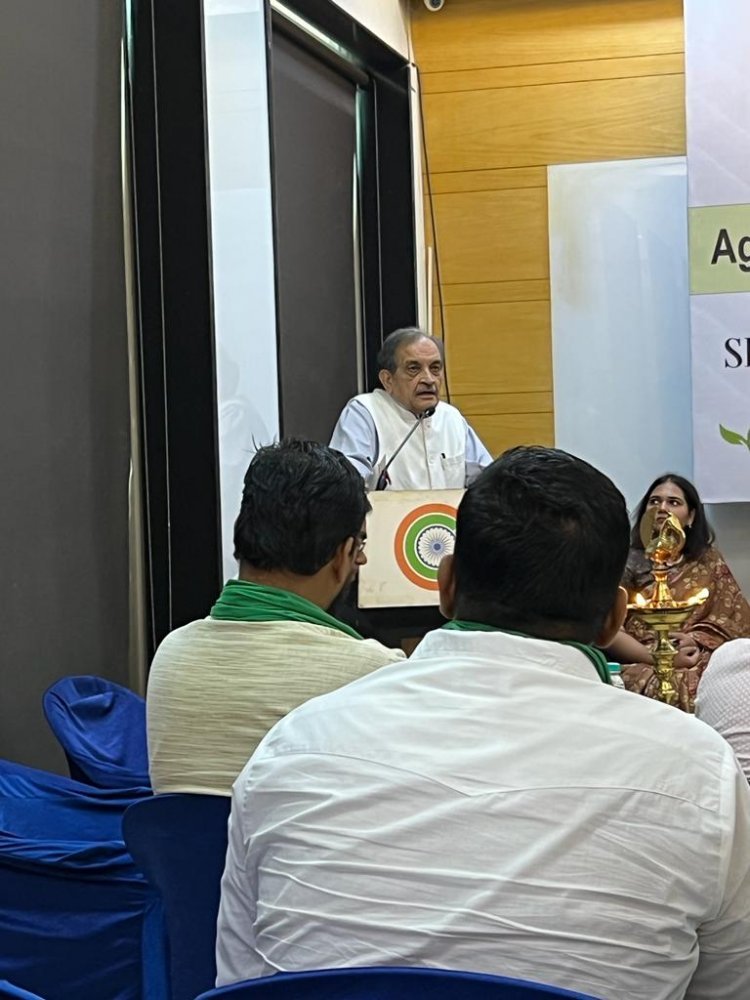
Farmers, too, have share in country’s wealth: Ch. Birender Singh
Ch. Birender Singh said that the farmers needed to raise their struggle beyond MSP and fertilizers and ask the bigger question: “Do we have a share in the country’s wealth?” He talked about his experience a few years ago as to how the coffee-growing farmer received a share of only Rs 2.37 in a cup of coffee that sold for Rs 200 at a five-star hotel. He lamented that even those from farmer families changed once they entered the bureaucracy and severed their ties to the farmers’ needs.
Singh said that if prices be compared across the past few decades, the prices for farmers’ produce have gone up only marginally in comparison to those for other products. He said that the fight was about farmers’ rights. Farmers need to impress upon the system that they, too, should have a share in the economy.
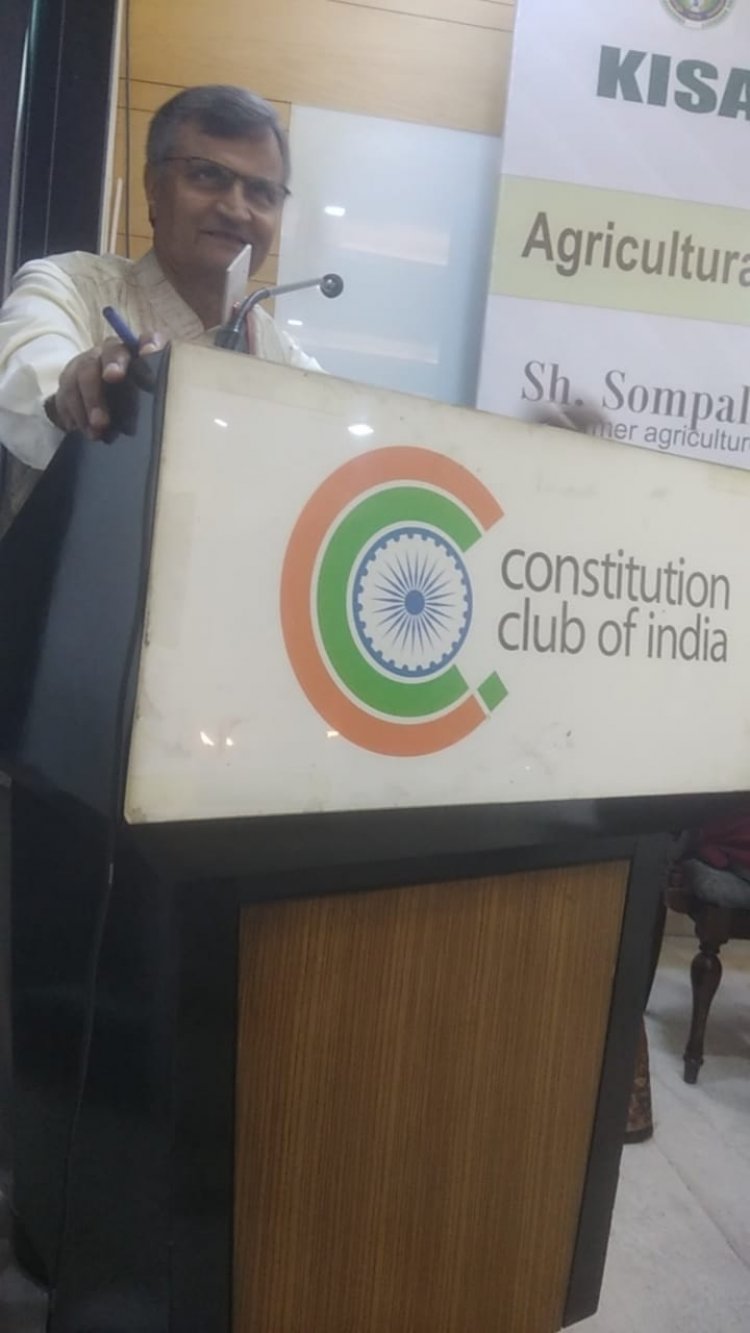
Need to assess prices through market intelligence: Prof. Ramesh Chand
Emphasizing the need for market intelligence, Prof. Ramesh Chand suggested that if farmers were told at the time of sowing their crops what the expected price of their produce would be, they could assess how much area to apportion to each of their crops. Similarly, when the crop is harvested, if they can come to know about its prices in the future, they can decide when to sell their produce. Farmers should also be told, on the basis of market intelligence, about the probable prices of crops in the next season.
Skill-based curriculum needed in agriculture universities: Harsh Bhanwala
Harsh Bhanwala impressed the need for a skill-based curriculum in agricultural universities. He suggested that agriculture, too, should be included as one of the subjects in the curriculum up to the +2 level. This will get the youth interested in agriculture and increase their awareness. Bhanwala said that farmers do need to sit in chambers just as the industrialists do, because it is in the chambers that policies are made. He said that agriculture was not restricted only to farming; rather, there was a need to look at it in association with rural development. Talking about a NABARD survey done some time back, he said that farmers obtained only 35 per cent of their income from farming. The rest of the income comes from other kinds of employment. Thus, creating employment in rural areas is necessary. Infrastructure development projects may be started in rural areas in order to provide stable employment.
Bhanwala said that rural infrastructure would benefit the farmers in any case because facilities like roads are needed for farming as well. He said that traditional sources of income were decreasing for the farmers. The overall production of milk may be increasing, but farmers are quitting the profession of cattle-rearing in several villages. Bhanwala emphasized integrated farming. He said that farming was the most diversified in Andhra Pradesh and the least in western Uttar Pradesh. Many farmers have enhanced their incomes through mixed farming in several parts of the country.
The former NABARD chairman felt glad that youths from professional backgrounds like IT were coming to work in rural areas. He mentioned a couple of start-ups he knew closely. AgNext tests the quality of fruits and vegetables through spectroscopy. Animall has become a one-stop shop for dairy farmers. Bhanwala said that such initiatives were necessary to develop agriculture.
Farmers should refrain from sowing all crops in all areas: Dr Bhim Sen Dahiya
Agricultural scientist Dr Bhim Sen Dahiya talked about the need for an agricultural policy. There has been no such policy in the country so far, he said. There is no policy as to which crops should be sown, where they should be sown and in how much area. He suggested that farmers should not sow all crops in all areas as their yield was climate-dependent. They should choose the crops in tune with the climate. Talking about the need for government intervention in research and development (R&D) for agriculture, Dahiya said that there was very little expenditure on R&D currently. Several institutes do not even have teachers in sufficient numbers.
Dr Dahiya also emphasized ensuring the quality and availability of seeds, fertilizers, etc. He said that DAP (Di-Ammonium Phosphate) was required at the time of sowing the crop. If farmers get it late, it does not serve any purpose. Rather, this only results in a meaningless increase in their costs. Dr Dahiya said that farmers at several places had improved their yield through experimenting. These experiments may be tried even in other parts of the country. Dr Dahiya alleged that only a few FPOs (Farmer Producer Organizations) were working for the farmers. They have largely become schemes to use government funds. Dr Dahiya said that organic food was much in news these days, but there was no such laboratory in the country that could prove whether an edible item was organic or not. Similarly, soil health cards were being issued to the farmers even as several places had no laboratory to test the soil.
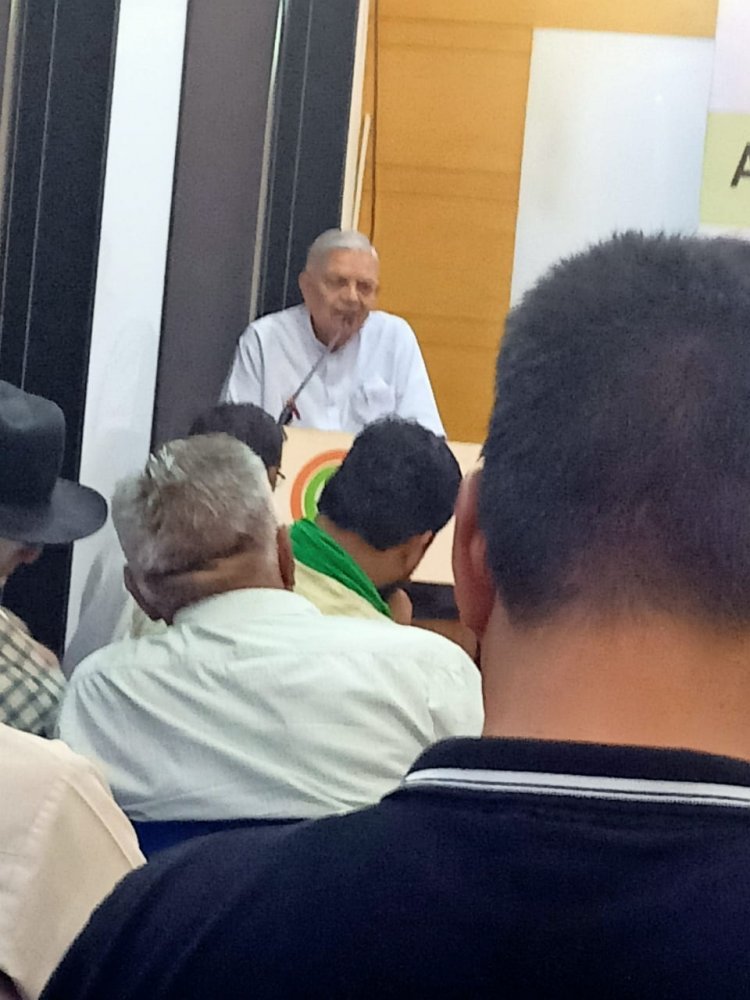
MSP calculation flawed: Kaptan Singh
Kaptan Singh, Chairman, Gramin Kalyan Sansthan, said that farmers had a negligible role in policymaking. Questioning the process of calculating the MSP, he said it did not take into account the actual costs incurred by the farmers. The MSP gets decided first and then costs are back-calculated. Criticizing the role of the middlemen, Singh said that they took money from both farmers and buyers. Some of the countries, he said, had a rule that did not allow middlemen to earn a commission of more than 20 per cent. India, too, should consider bringing about such a law.
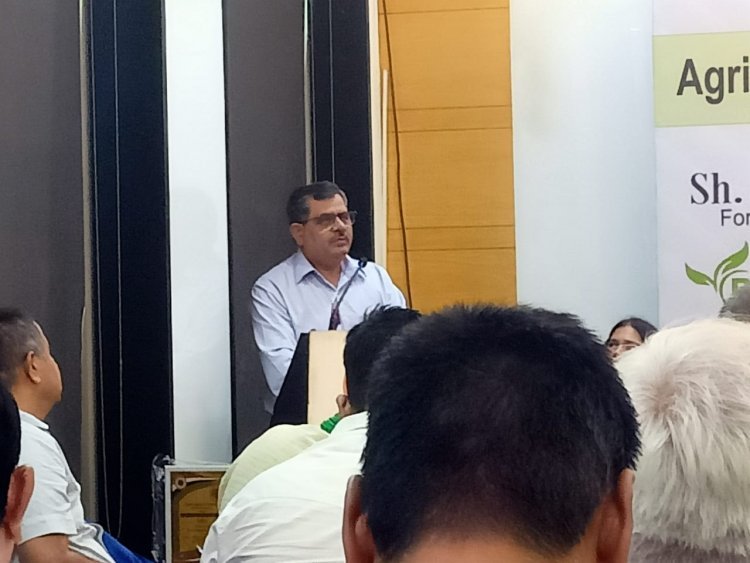
Farmer organizations should come up with fact-based suggestions: Harvir Singh
Speaking on this occasion, Harvir Singh, Editor-in-Chief, Rural Voice, said, that the condition of the farmers would improve only when policies are made in their favour. Farmers will have to intervene in the policymaking process if they desire policies for their welfare. For this, however, farmer organizations need to come up with suggestions based on facts and figures.
Singh said that while the industry chambers raised their voices on every issue small and big, farmer organizations spoke only on major issues like MSP. For example, he said, the fertilizer problem has been going on in the country for a year and a half, but farmers have not raised any organized voice so far. Similarly, wheat farmers received no compensation for the loss they incurred on account of the unusual rise in temperature, but farmer organizations did not raise their voices. He said that while people from the industry were part of pre-budget discussions, there was no representation of the farmers.
Agriculture-related decisions need to be reviewed from time to time, said Singh. For example, he said, when future trading started in agricultural commodities, a major scam surfaced soon after. Hence future trading also needs to be reviewed. Singh also criticized the media for not giving weightage to the rural areas and said that rural issues do not come to light. Besides, in absence of adequate coverage, the farmers do not have proper access to new information either.
Suresh Deswal, General Secretary, Kisan Chamber of Commerece (KCC) gave a presentation on the functioning and objectives of the chamber. Virender Siwach, President of the KCC outlined the plan of the Chember for coming year.



 Join the RuralVoice whatsapp group
Join the RuralVoice whatsapp group

















